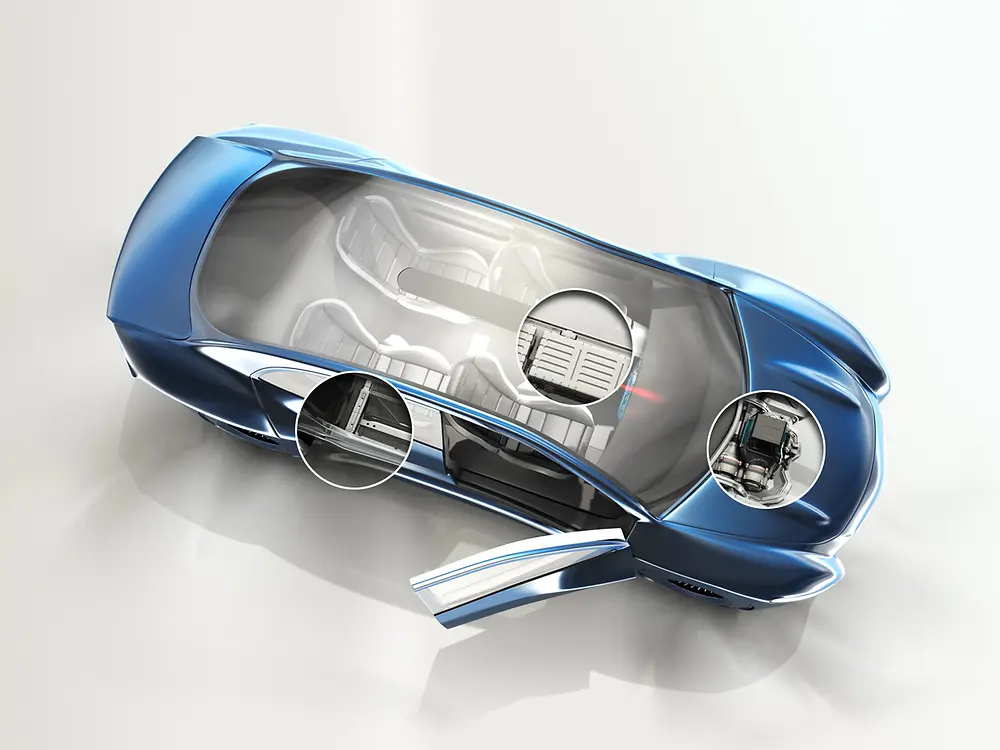But what does this step-shift mean for manufacturers? Which adaptions will they have to make to production processes—while still delivering high performance, safety and efficiency?
For Dr. Christian Kirsten, Corporate Senior VP of Automotive & Metals at Henkel, three changes will have profound opportunities for automotive material suppliers moving forward:
Optimizing the design of these future vehicles will require a combination of engineering and material science expertise.
Henkel Adhesive Technology solutions include thermal interface materials, like gap filler technology, which will help batteries run safely at a consistent temperature. Other technical examples from the portfolio include adhesive technologies for bonding battery cells together, and UV light purification solutions that reduce cycle times and lower processing costs.
“Our portfolio includes thermal interface materials, adhesives, sealants and functional coatings for battery packs, but also other specific components on the car,” says Frank Kerstan, director e-mobility & Powertrain at Henkel. “We combine this material expertise together with engineering support to work with our customers on new designs in a very early phase, to ultimately allow them to achieve smarter and more cost-efficient designs for certain components.”
For a detailed account on the changes in automotive industry and how Henkel Adhesive Technologies’ technical solutions are accelerating transformation in the mobility industry, watch this video.






